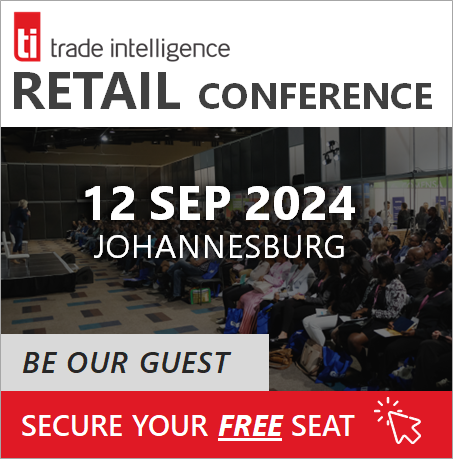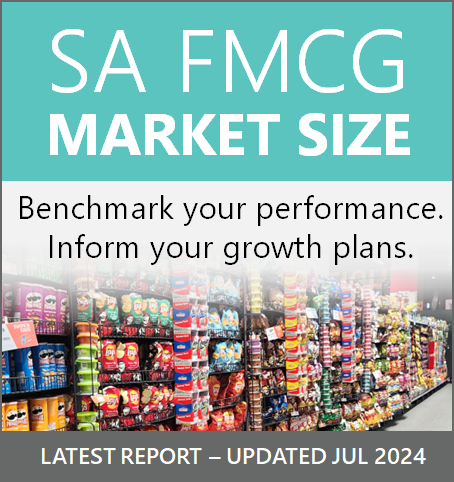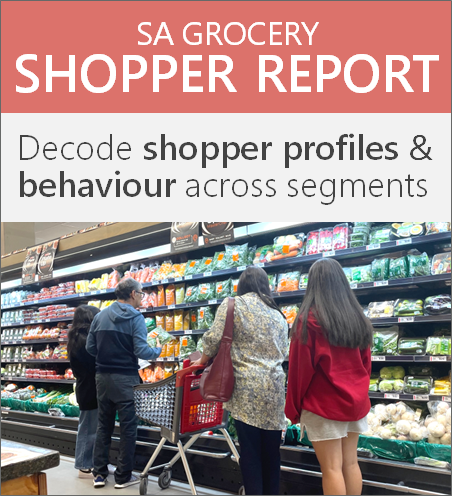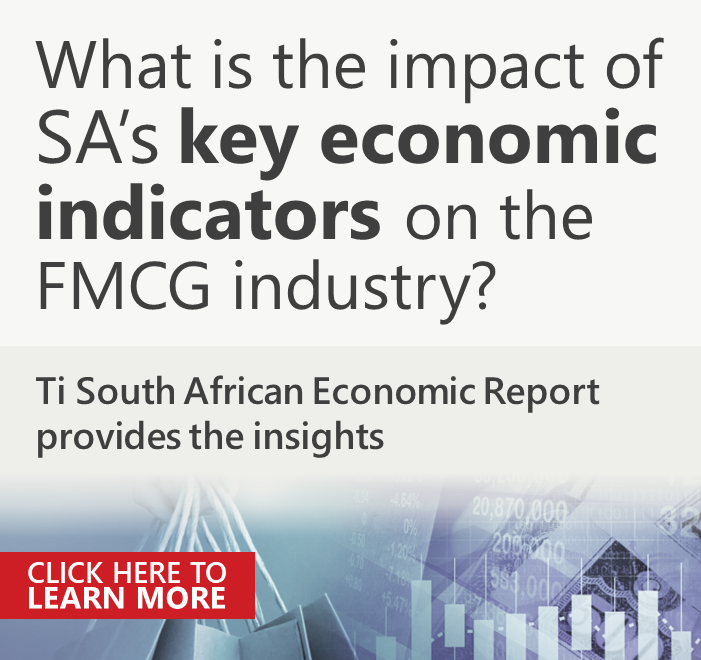
THIS ISSUE: 25 Feb - 03 Mar
War in Ukraine, serious implications for our beleaguered consumers here in the Beloved Country. But some sterling work by our retailers to improve food security for the poorest South Africans, and heartening work globally to make our value chains more sustainable. Enjoy the read.
YOUR NUMBERS THIS WEEK
RETAILERS AND WHOLESALERS
-
Shoprite Can you dig it?
One of Shoprite’s unsung initiatives is its support for sustainable food security in under-resourced and vulnerable communities across the Beloved Country in the form of food gardens. The Big Red One supports more than 150 food gardens and over 2,500 home gardens, benefiting almost 17,000 South Africans, has trained more than 570 community members in sustainable food gardening in the past year alone, and has distributed seedlings, fertiliser, gardening tools and more to help community members start and grow their gardens. The retailer is expanding its support of KwaZulu-Natal communities after last year’s unrest by investing in an additional 30 food gardens in the province in communities like Inanda, KwaMashu and Newlands West. “Communities are struggling due to the impacts of the COVID-19 pandemic and climate change, and this programme will provide much needed relief,” says Shoprite Sustainability Manager Sanjeev Raghubir.
Comment: Critical work from a visionary business.
-
-
Woolworths Down on the farm
Over the holiday season, you may recall, Woolies was on a fundraising drive among its punters, under the banner of its “Take a moment to make a difference” campaign, to raise cash for the various initiatives it supports as part of its food security strategy. A not inconsequential R2.5m was raised, and went to various worthy projects, including: - Afrika Tikkun Foundation, which supports young entrepreneurs in Gauteng and Western Cape in starting their own agriculture businesses; - Inmed South Africa, helping unemployed young people in the Free State who wish to start climate-smart agri businesses; - Joint Aid Management (JAM – South Africa), which is improving food security in vulnerable Free State communities; - Siyazisiza Trust, which gives aid to young Eastern Cape farmers; - Social Change Assistance Trust (SCAT), which assists community food gardens in the Northern and Eastern Cape; - Thanda, in KZN, which has been striving for better food security and farming success in rural KZN for over a decade.
Comment: Like Shoprite, this is an area in which Woolies has both expertise to provide and (with its shoppers) resources to share.
-
-
In Brief Taxing times
Last week, rumours were buzzing on social media – based on a leaked and probably fake police intelligence document – that there was to be planned looting of Massmart stores over the weekend. Massmart took the necessary precautions; thankfully the rumours turned out not to be true. But such is the power of social media and the uncertain ambit in which we all find ourselves. Moving on to SPAR, which with the Food Marketing Institute (FMI) celebrated February 22 as Supermarket Employee Day – a time to recognise food industry employees at every level for the work they do feeding families and enriching lives. For some of those stories from SPAR’s global community, have a look over here. Finally, weighing in on last week’s budget speech – before it actually happened – was the South African Informal Traders Alliance Saita, which represents more than 2 million informal and micro businesses across SA, and which called for the Ministry of Finance to reconsider its proposal to hike or impose VAT on a range of products which are the lifeblood of the informal trade. Like the Massmart looting (above) fears of any changes to the current VAT regime turned out to be overblown.
Comment: The strength and level of engagement of organisations like Saita are in turn among the strengths of this great country we call home.
-
-
International Retailers Apeel and Oranges
Tesco is trialling a new plant-based wrapping to extend the shelf life of its produce, sealing the moisture in and keeping oxygen out to preserve freshness. [appealingly] Named Apeel, the protective solution is made from the same materials that are found in peels, skins and seeds. The first products to hit the shelves thus coated are oranges, a fruit distinguished by having its own impermeable wrapping. In Kenya, Carrefour’s sales last year grew a whacking 25.8% to Sh32.9bn (R4.4bn). The business opened doors there in 2016, now boasts 14 stores and online shopping. In the UAE, the French giant is opening its first BIO store, which offers biodegradable packaging, refill stations for detergent and water, pick by weight nuts, spices, and dried fruits, homemade products from local businesses, and if that’s not enough, its own in-store hydroponic farm.
Comment: Carrefour’s success in Kenya comes against the backdrop of South African businesses exiting the East African market. A study should be made of this.
MANUFACTURERS AND SERVICE PROVIDERS
-

Daymon Power Plants
In a couple of weeks, our friends at Daymon (Global Brand Development Specialists) will be releasing a white paper on the plant-based consumer – a growing category of people who buy our brands and shop in our stores. With consumers increasingly adopting a plant-based lifestyle more than before, retailers and manufacturers can unlock opportunities by meeting their needs, and by addressing the reluctance of other consumers who are not onboard with the lifestyle yet. If you’re interested in marketing plant-based product in-store and online, this report is for you. If you’re seeking the answer to the question “what shape and form will plant-based take in our business?”, ditto. And if, like us, you are interested in finding out more about the many different types of plant-based consumers there are, then definitely ditto too. Plant-based is a crucial innovation driver and strategic pillar for many in the food retailing industry. This report will help us all get onboard.
Comment: For more on this ground-breaking and important work, dig in over here.
-
-
RCL FOODS Taking flight
Interims out for RCL FOODS, which as it diversifies into groceries, commodities and logistics is an increasingly useful bellwether for the health of the industry as a whole. Accordingly, you’ll be glad to hear that revenue was +9.2% to R17.1bn for the six months through December, with operating profit +18.9% to R1.2bn. And for a snapshot of how the divisions performed, earnings-wise, groceries were +2%, baking -9% against higher input costs, sugar +8%, chicken up a whacking +34% as better production pushed up volume and an outbreak of bird flu reduced market supply, and Vector Logistics +9%. The separation of the business into its standalone entities is now complete, and the benefits of a flatter, more centralised management structure are beginning to kick in.
Comment: All things considered, a strategy which is beginning to deliver, and the ongoing return of a great South African business to sustainable performance.
-
-
In Brief Oil, wheels, commerce
Over at Tiger Brands, revenue is -1% for the quarter through December, on the back of a major strike which cost the business R120m, and a price war among bread producers, which led to significant volume losses in its bakeries division. Moving on, Distell has reported a half-year profit gain of +17.5%, driven by foreign currency gains. Excluding those, headline earnings – a solid measure of profitability – were +6%, off a +15.8% increase in revenue as the liquor industry bounces back from COVID restrictions. And speaking of iconic South African businesses soon to be in foreign hands, the Competition Tribunal has approved the sale of IMPERIAL Logistics to DP World out of Dubai, and substantially controlled by that arid principality’s government. Part of the deal is that an employee share ownership programme (Esop) will be set up, through which employees will have a 5% interest in subsidiary IMPERIAL Logistics South Africa Group (ILSA). Further afield, Unilever is working with digital crowdsourcing platform Premise to recruit factory workers, farmers and other stakeholders in Indonesia to verify (or disprove) the sustainability of the palm oil supply chain.
Comment: What does foreign investment in our FMCG supply and value chains bode? Time will tell.
TRADE ENVIRONMENT
-
Ukraine Trade war
What are the implications of the conflict between Ukraine and Russia here at the foot of Africa? Significant, as it turns out: the two countries account for 25% to 30% of the world’s wheat exports, 20% of maize exports and 80% of sunflower oil exports. So a squeeze on the supply in either country will put a squeeze on global markets for those commodities. Accordingly, the price of wheat has reached its highest since 2008, while oil is up to over $105 a barrel, the highest in eight years. These numbers will increase inflationary pressures on food globally, and of course here at home, where many South Africans exist on the knife edge of food insecurity. There’s also the matter of direct trade – our trade with both countries has grown over the past 20 years. Last year, we sent R412m worth of goods including nickel, fertiliser and citrus, and imported R748m worth of buckwheat, industrial printers, and dried legumes, inter alia.
Comment: The rockets may be landing thousands of miles away. But the world will pay, one way or the other, and so will we.
Sign up to receive the latest SA and international FMCG news weekly.
Tatler Archive
“Nobody is qualified to become a statesman who is entirely ignorant of the problem of wheat.”







1.png)
